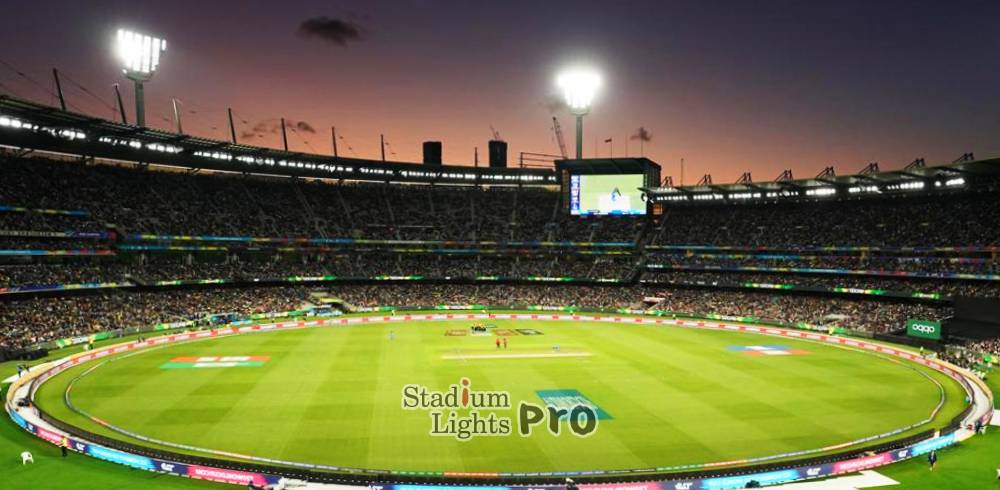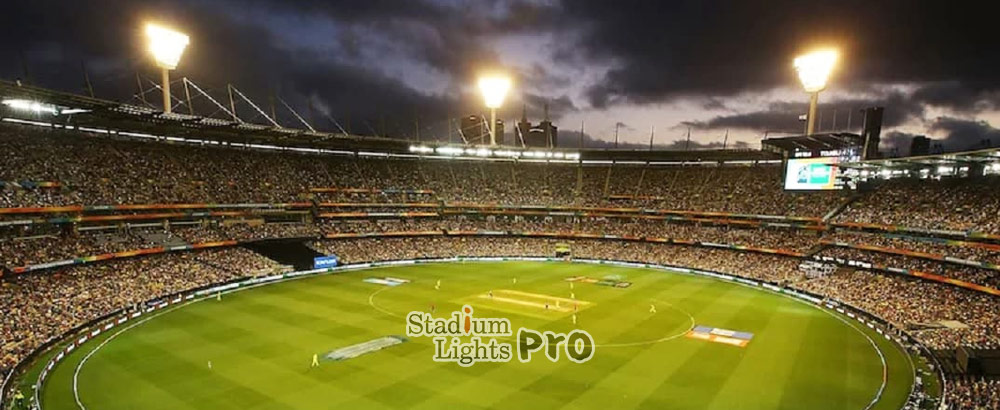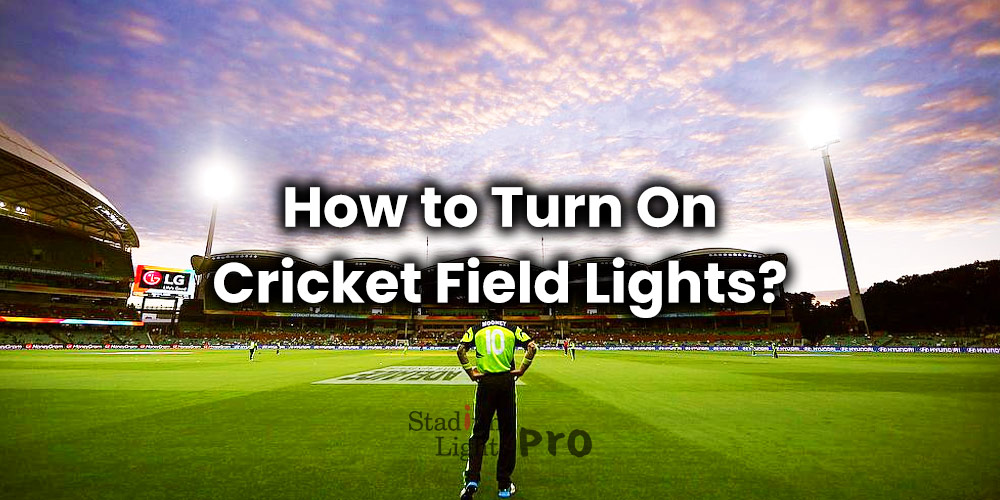Cricket is a sport that thrives under natural light, but there are times when matches are scheduled to be played during twilight hours or even at night. In such instances, the proper illumination of the cricket field becomes crucial for players and spectators alike. The process of turning on cricket field lights involves several steps to ensure a well-lit and safe playing environment. We are going to provide a detailed guide on how to turn on cricket field lights.
Table of Contents
ToggleA guide on how to turn on cricket field lighting

Familiarize yourself with the lighting system
Before attempting to turn on the cricket field lights, it is essential to have a basic understanding of the lighting system installed at the venue. This includes knowing the location of the control panel, switches, and any additional equipment required to operate the lights.
Check power supply and safety measures
Ensure that the power supply to the lighting system is intact and functioning correctly. Inspect all electrical connections for any signs of damage or wear. Besides, verify that all necessary safety measures, such as circuit breakers and grounding, are in place and properly functioning.
Activate the control panel
Locate the control panel for the cricket field lights. Depending on the system, the control panel may be a physical switchboard or a digital interface. It is essential to read and understand the manufacturer’s instructions for operating the control panel to avoid any mishaps.
Switch on the main power
If there is a master power switch controlling the entire lighting system, ensure it is in the “on” position. This switch typically provides electricity to the control panel and other components of the lighting system.
Select the desired lighting mode
Modern cricket field lighting systems offer various lighting modes, such as practice mode, match mode, and dimming options. Select the appropriate lighting mode according to the requirements of the game. This choice might depend on factors such as the time of day, weather conditions, and the level of play.
Activate the floodlights
After selecting the desired lighting mode, locate the switches that control the cricket stadium floodlights. These switches may be labeled or color-coded to differentiate them from other switches on the control panel. Turn on the floodlights gradually rather than all at once to avoid sudden power surges.
Adjust lighting levels
Once the floodlights are activated, make necessary adjustments to achieve the desired lighting levels. Lighting requirements can vary based on factors such as the size of the field, ambient light conditions, and specific match regulations. Consult the lighting system manual for guidance on adjusting light levels.
Test the lighting system
Before a match or practice session, it is crucial to conduct a thorough test of the lighting system. Check all the floodlights to ensure they are functioning correctly. Verify that the lighting levels are adequate and uniform across the entire field. Make any necessary adjustments to guarantee optimal visibility for players and spectators.

Common mistakes when turning on the lights in the cricket stadium
When it comes to turning on the lights in a cricket stadium, there are a few common mistakes that people tend to make. By being aware of these errors, you can avoid them and ensure a smooth and successful lighting operation. Here are some of the common mistakes to watch out for:
Neglecting safety procedures
One of the biggest mistakes is overlooking safety protocols when turning on the lights. It is essential to follow all safety guidelines, including proper grounding, circuit protection, and handling electrical equipment with caution. Ignoring safety measures can lead to accidents or electrical hazards.
Incorrect sequence
Another common mistake is not following the correct sequence of steps to turn on the lights. Each lighting system may have its specific requirements. It is crucial to refer to the manufacturer’s instructions or consult with an expert to determine the proper sequence for activating the lights.
Inadequate power supply
Insufficient power supply can be a significant issue when turning on the lights. It is essential to ensure that the electrical infrastructure can handle the load required by the lighting system. Overloading the power supply can cause flickering lights, reduced brightness, or even a complete system failure.
Failure to test the lights
Not testing the lights before an actual match or event is a common oversight. It is crucial to conduct thorough testing of the lighting system to ensure all the lights are functioning correctly, the light levels are suitable for the playing area, and there are no issues with the distribution or coverage of light across the field.
Improper lighting adjustment
Incorrectly adjusting the lighting levels can affect the quality of play and overall visibility on the field. It is crucial to understand the lighting requirements based on the size of the field, weather conditions, and specific match regulations. Failing to make proper adjustments can lead to shadows, glare, or uneven lighting, affecting the players’ performance.
Lack of maintenance
Neglecting regular maintenance of the lighting system can lead to operational issues. We may keep the lights clean, inspect electrical connections for any damage, and ensure proper functioning of switches and control panels. Regular maintenance can prevent unexpected failures or malfunctions.
Not seeking professional advice
Not seeking professional advice or guidance when dealing with complex lighting systems can lead to mistakes. It is advisable to consult with experts who specialize in sports lighting or contact the lighting system manufacturer for any technical assistance or troubleshooting.
Conclusion
Turning on cricket field lights involves a systematic approach to ensure the safe and effective illumination of the playing area. By following the steps outlined in this guide, you can successfully operate the lighting system, allowing players to compete under optimal visibility conditions. Remember to prioritize safety at all times, and consult the manufacturer’s instructions or seek professional assistance if you encounter any difficulties. Enjoy the game and let the lights shine bright on the cricket field!
For expert guidance and free consultation on cricket stadium lighting, please do not hesitate to contact us. Our experienced team is ready to assist you in ensuring optimal lighting conditions for your cricket field.

